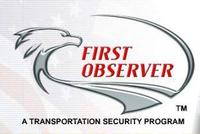-
IATA calls for harmonization and vigilance in aviation security
The International Air Transport Association (IATA) urged governments and other aviation stakeholders to join airlines in a partnership to improve aviation security and the experience of both travelers and shippers; key to this is early adoption of IATA’s Checkpoint of the Future (CoF), a supply chain approach to cargo security, harmonization of measures among governments and constant vigilance to new threats
-
-
Tallahassee airport upgrades security
ADT Commercial was selected by the City of Tallahassee, Florida to upgrade the security at the city airport — and integrate the different security solutions; the integrated system includes video surveillance, access control, and emergency notification systems
-
-
New Zealand relaxes passenger X-ray screening requirement
To save money and speed up the processing of international passengers, New Zealand no longer requires 100 percent screening of bags of passengers entering the country; Kiwi farmers are worried about the move carry the risk of introducing animal disease into the country; the 100 percent screening mandate was imposed after a foot and mouth outbreak in 2001
-
-
House considers industry advisory group for TSA
House lawmakers are currently considering a bill that would create an industry advisory panel for the Transportation Security Administration (TSA) on aviation matters
-
-
Task force releases Secure Communities report amid internal discord
Last week, a government task force created to offer recommendations on how to fix the controversial Secure Communities immigration program released its findings to a chorus of internal disagreement; the committee recommended that DHS restart Secure Communities and “reintroduce” the program due to its unpopularity among immigration advocates, local residents, as well as state and local officials; as an act of protest, five of the nineteen committee members resigned because they did not agree with the report’s conclusions
-
-
Future electric vehicle to run unlimited distances

Electrically powered vehicles (EV) are promising environmentally friendly alternatives for combustion engine-based automobiles; batteries used in present-day EV, however, limit the continuous running distance from one charge; researchers propose a potentially revolutionary solution for powering EVs capable of running unlimited distances
-
-
New rail-sensing technology saves time, energy, money
Leaves, as well as snow and rain, cause problems for trains because they reduce traction and cause wheels to spin on acceleration or to lock when slowing down; researchers are working to solve the age-old problem of leaves on the line delaying trains
-
-
NTSB calls for ban on use of mobile phones by commercial drivers

Citing distraction from the use of a mobile phone by the driver of an 18-wheel semi truck as the probable cause of a crash that killed eleven people, the National Transportation Safety Board (NTSB) recommended banning the use of mobile phones by commercial drivers except in emergencies
-
-
Children no longer have to remove shoes at airports

DHS Secretary Janet Napolitano said that her agency is changing its airport security policy for children twelve years and younger who will no longer be required to remove their shoes at airport checkpoints; in addition, Napolitano said the agency’s new policies seek to avoid pat downs for children by using other screening techniques
-
-
Iris scanners help passengers zip through airport security
Airline passengers in the United States could soon be zipping through security checkpoints thanks to iris scanners; London’s Gatwick and Qatar’s Doha International airport have already implemented iris scanners from AOptix Technologies, which allow passengers to simply walk through a checkpoint as the scanners can accurately read a person’s iris from as far as eight feet away
-
-
Parking attendants part of U.S. anti-terrorism effort

More than 7,000 parking professionals have been trained in the First Observer parking-specific program developed by the International Parking Institute with the DHS and the Transportation Security Administration
-
-
TSA: Aviation security "stronger and more secure" ten years later
Lisa Farbstein, a spokesperson for the Transportation Security Administration (TSA); discusses new technologies implemented by TSA and DHS and the agency’s shift to a more risk-based approach to passenger screening
-
-
Groups seek FCC ruling on BART’s cell phone shutdown
An ongoing legal battle in California over whether law enforcement agencies can shut off cell phone service could set the precedent for policies across the United States; in response to the Bay Area Rapid Transit’s (BART) decision to shut down its mobile phone service during a planned protest, several digital rights groups are urging the U.S. Federal Communications Commission (FCC) to take swift action
-
-
Germany says "nein" to full-body scanners
Germany has decided against deploying full-body scanners at German airports; after a 10-month trial, in which 1,280,000 passengers were scanned, the government said that the false alarm rate was just too high
-
-
Somali pirates adapt and thrive
Somali pirates have grown bolder and more clever in adapting to world attempts to curtail piracy; last month, they recorded their first hijacking of a ship anchored in port; total costs of piracy now reach $12B
-
More headlines
The long view
Calls Grow for U.S. to Counter Chinese Control, Influence in Western Ports
Experts say Washington should consider buying back some ports, offer incentives to allies to decouple from China.
